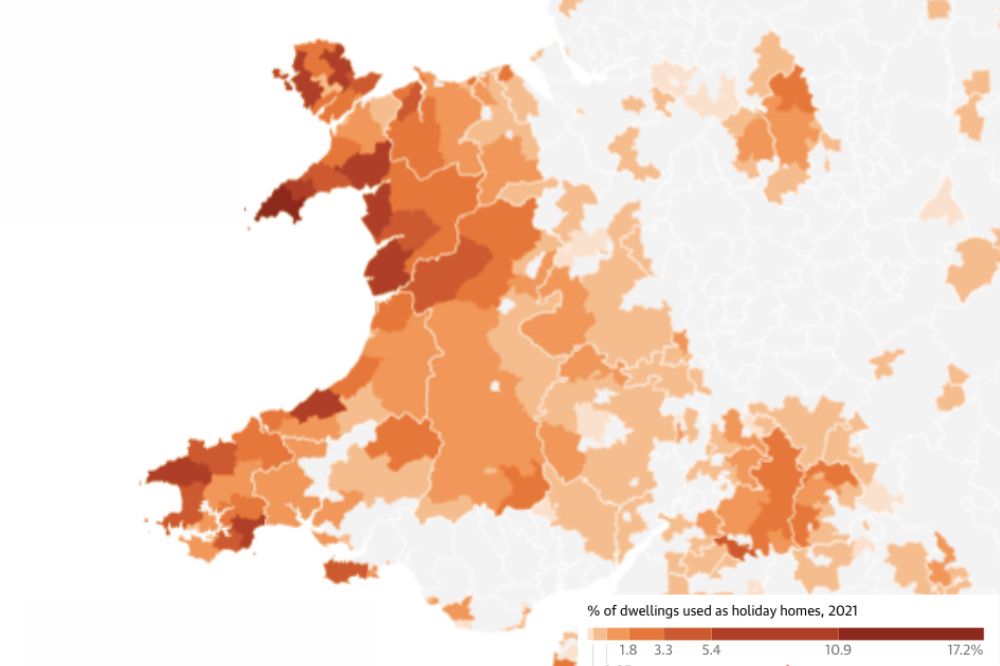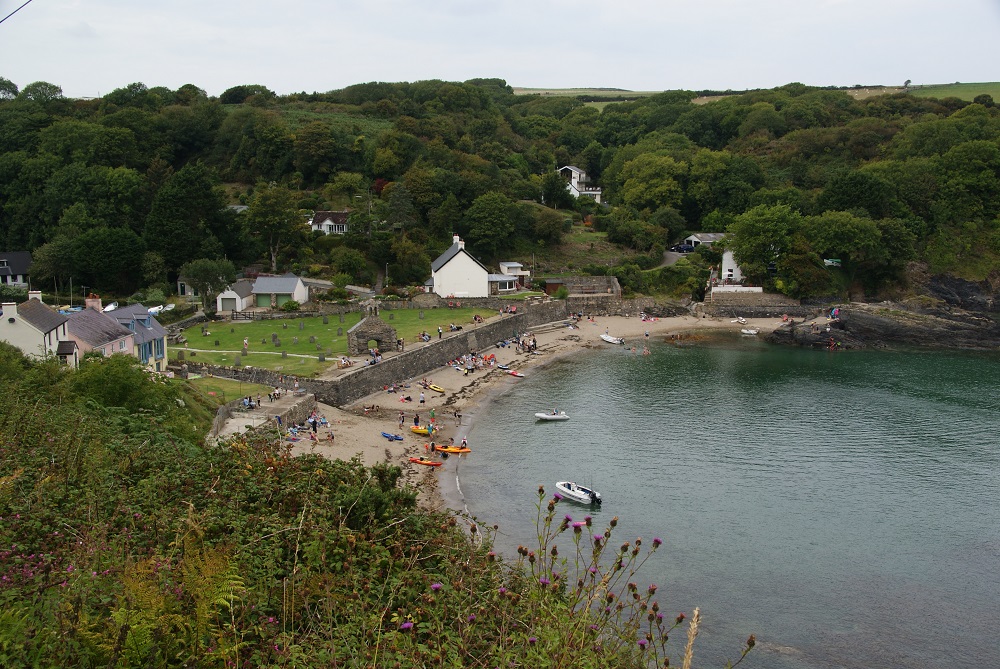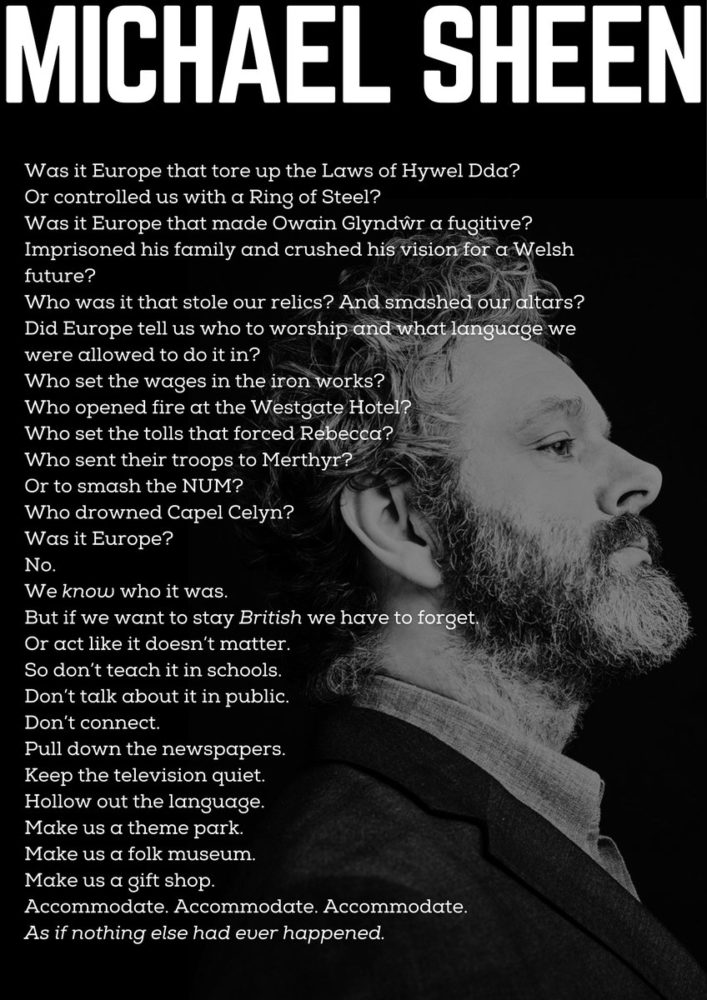Wales has accommodated enough. AirBnBs and second homes are no longer welcome

Stephen Price
An article published by the Guardian following the Budget in March contained a shocking graphic which brought to light the high concentrations of holiday homes found in Wales.
The article focused on Cornwall, where locals say they are on a “cliff edge” due to the sheer number of people with second and third homes – sharing the impact this is having on local schools and businesses.
Heck of a map from @guardian pic.twitter.com/Uz7TyQexrA
— David Ellis (@David_J_Ellis1) March 7, 2024
The stories could have easily been plucked from communities within any of our own coastal areas and national parks.
Famously, Nation.Cymru shared the story of 88-year-old Norman Thomas, the last Welsh speaker in Cwm-yr-Eglwys in Pembrokeshire, who called on the Welsh Government to protect dying communities such as his back in 2021.
What happened next…
Much has happened since – councils across Wales are finally able to increase council tax up to 300% – but the impacts on the ground have yet to be felt. We live next door to a nation with almost twenty times our population after all.
So far, councils have teetered towards a 100% increase – with much applause from people from Wales each time they raise the cost. But is it enough?
A financial deterrent only works for those who don’t have deep pockets. For anyone who can afford the million pound plus price tag of a property in Cwm-yr-Eglwys, this is simply laughable.
Either stop it, or don’t.

In a poignant scene on S4C’s Pobol y Mor (People of the Sea), a fisherman who grew up in Llangrannog talked about how, in the space of a matter of decades, his home village went from being Welsh to English, often to be used as holiday homes and AirBnBs.
His words, spoken matter of fact and bluntly, weren’t embellished – but in scenes of him out on the open shore afterwards in search of crabs and solace, what he didn’t say and how he visibly looked – his pauses and his silences – were just as powerful.
The story is the same across Wales. We see it happening in front of our eyes – the hollowing out of our communities, eye-watering property prices, the houses used as investments or crash pads for the rich.
But we mustn’t connect the dots.
Tristwch
The last time I wrote a piece about the housing crisis facing Wales, I was accused of being jealous.
How dare someone have an opinion about an injustice facing countless people who can’t afford to live in the places they were born, or where they wish to work even.
That’s how the world works nowadays – throw as powerful a label as you can at someone and get them to shut up. Only Wales has been meek and kind and has shut up for too long to its own detriment.
We’re a nice bunch, often too nice. And where does it get us?
Many properties in my own home village are now holiday homes and AirBnBs – and I’m told this is somehow good for the local economy. I have yet to see evidence of that being the case, but I must remember to thank their absent owners if I ever get the chance to meet them.
Michael Sheen’s rousing speech from 2017 – “Make us a theme park, make us a folk museum.. Accommodate. Accommodate. Accommodate,” made mention of this go-to default mode to not ruffle feathers, to be polite and “act like it doesn’t matter”.
We can talk about it amongst ourselves, but to publicly raise concerns about house prices, families in emergency accommodation or on the streets while they wait for a place to call home, or the scourge of holiday homes across the country is to be compared (as I have been – credit to them, I do like a nice roast) to characters from the League of Gentlemen.
But Welsh people have accommodated enough.
We’ve all had enough. And our Cardiff-based leaders need to listen.

I missed the chance to go to Llangrannog’s summer camp in the first years of high school, but went for the first time during the Sixth Form, determined to use more Welsh and try it out on the locals.
If only I’d spoken to the fisherman before.
My first ‘shwmae’ with a ‘local’ was met with a blank stare and a very un-Welsh silence. And every coastal holiday since has shown that complete contrast with the familiar Welshness of the valleys I’ve grown up with.
Llandudno and Aberystwyth offer a similar, ‘Oh…’ scratched head feeling whenever I visit. And in my forty plus years of holidays in, and life lived within, Wales’ coastal and national park communities, their once vibrant Welshness seems to be diminishing rapidly.
Global issue
This isn’t a local shop for local people, it’s a proud nation of welcoming people, but a people who recognise injustice and unfairness as much as any other.
While our own people wait for a safe, warm roof above their heads, it’s frankly offensive to have our housing stock sit empty outside of the holiday season or to find a depressing new lease of life as a boutique AirBnB.
And this is not just a Welsh issue.
In an article for Business Insider from last year, Isabel Heine, a 40-year-old attorney from Queens, New York explained why she no longer used AirBnBs, referring to them as “morally sketchy”.
She said: “I saw what it was doing to local housing markets, including my home in New York City, where there were more Airbnb listings than available apartments in 2022.
“And it wasn’t just New York — in Mexico City, Americans were renting apartments or Airbnb by Americans at prices that many locals couldn’t afford.”
“Off you trot!”
She finished: “Maybe it’s the bias of my social circle — I work at a social-justice organisation — but it seems like the tide is turning away from AirBnBs.
“We want to be aware of the effects our decisions have on our wallets and on other people. AirBnB just doesn’t align with us anymore, financially or morally.”
The tide really has turned.
Cymdeithas yr Iaith Gymraeg are currently calling for the introduction of an Article 4 Directive for the whole of Eryri.
The introduction of this policy would make planning permission mandatory before changing the use of a property from a main home to a second home or short-term letting accommodation.
Gwyn Siôn Ifan, Chair of the Gwynedd and Môn Region of Cymdeithas yr Iaith, said: “The significant number of second homes and short-term holiday accommodation in Eryri – around 17% of the entire housing stock – is a symptom of the inequality of an open housing market which undermines the sustainability of communities and threatens the future of Welsh as a living language.
“According to a report prepared for the Planning Committee, 65% of Eryri’s entire population have been priced out of their own housing market.”
Half measures
I personally don’t think they’re going far enough. AirBnBs and holiday homes must no longer be a part of our national story and both need an outright ban.
And on top of that, in Gwyn Siôn Ifan’s words, “Ultimately, the housing system must be transformed at its core by introducing a Property Act which would treat houses as essential social assets and put the housing needs of communities before profit.”
If anyone wishes to enjoy a break in our country, or any other country for that matter, book a hotel or stay at a holiday resort and actually support local people.
And if you miss the dog, find a dog-friendly one. It’s that easy.
Call me, or anyone else asking for fairness for Welsh communities, what you want, but close the door on your way out.
Support our Nation today
For the price of a cup of coffee a month you can help us create an independent, not-for-profit, national news service for the people of Wales, by the people of Wales.






Come the revolution…it would be a civil war up here…look forward…
Llandudno and Aberystwyth, not much in common except the sea and piers…
Revolution? What time does that start? 🤔
Is this what they teach in Swansea? G*bsh*te shut-the-door PR. Tourism – and tourism within small nations and environmentally sensitive landscapes particularly – has been recognised by academics as a problem of balance for generations, the influx of new money to support the economic needs of rural areas traditionally only generating seasonal and low-paid jobs. Wales struggled additionally with poor broadband for many years, holding back the development of local entrepreneurship. That has largely passed by, as witness the number of people who were able to move out of cities post-Covid, thanks to home and hybrid working practices. What is… Read more »
You’ve gone off on multiple tangents there. Tourism that respects local communities is welcome. Write a counter if you like, but if you do, try to stay on topic.
Wow boi mind your manners…
Thanks teacher, there was nothing welcoming in your piece. If you don’t want tourists taking up accommodation and you don’t want to oblige Welsh people to stay in Wales, what do you want? What is your solution? It’s sad of course but our Anglesey and Gwynedd builders and tradesmen do very nicely out of the English pound. When I worked in Cardiff in the early 1990s, no-one spoke Welsh, there were no Welsh language job adverts in the Western Mail.
Taking up doesn’t need to be buying an entire property, or indeed buying an entire coastal village. I haven’t for a second suggested banning AirBnBs and second homes would be the one thing that would solve the ills of Wales. I can also assure you that many people spoke Welsh in Cardiff in the 90s, unless the people I know personally (who attended Welsh language chapels, worked in Welsh, lived in Welsh, taught or went to school in Welsh) are imagined just as all my points made in this article are. Nos da!
Surely tradespeople and businesses do much better out of people who are resident year-round than second-home owners who may be there a month or two in a year?
Hardly, how many icecreams, fancy dinners, fish and chips for 6+ people at a go do locals buy? Different world
It’s not exactly a great economic model to keep the natives much poorer than the outsiders.
Great article Stephen!!!
Just for clarity:
“I personally don’t think they’re going far enough. AirBnBs and holiday homes must no longer be a part of our national story and both need an outright ban.”
What’s your point?
I agree, plus although I’m an import from England I came here 25 years ago, now its air b&b, holiday homes, prices to buy have shot up as folks sell in England, buy a giant house and a few more with the change as hmos etc , itsxa mess next year I’m giving up renting and going to live in a caravan and motorhone
Michael Sheen is a passionate man, but I don’t agree with his analysis. It’s not English v. Welsh, it’s unequal wealth that makes Wales so vulnerable.
Do you not realise, money talks, and it’s speaking English with an English accent.
Yes indeed Airbnb and holiday lets not only take away previously rentable properties but also push up house prices.
What’s takes away rentable properties is’nt Air B& B’s, its the Labour Party’s decision to axe a Section 21 Notice. 100’s of Landlords have & are selling up because of it, and once a rental property is sold, it’s out of the market for good. Blame Labour, they started the ball rolling on this mess a long time ago.
Strongly disagree with this article. 2nd home owners spend in their local area. And many people retire and live in their previously 2nd homes (now 1st homes) so importing wealth into a commumity but without having taken local jobs. Instead such people spend at restaurants, with local tradesman, supermarkets and all shops really so egenatjng jobs in area. Retirees have also often uplifted the housing stock by making their home into a good one so when they die they area has a modern house. And this process goes on throughout the UK. Tourism is a major part of the Welsh… Read more »
Thanks Jack, And not being a girl, you don’t get abused for having a sensible conversation. I would add RS Thomas and David Jones, two of the most respected 20th century poets.
RS Thomas detested tourism on The Lleyn Peninsula where he lived.
Was he drunk at the time?
The tourism industry in Cymru should be a sustainable all year round industry that provides well paid jobs.
At present Cymru is nothing more than a playground for the English Conurbations which over the decades has led to colonisation.
Furthermore the USA and Australia only came about after the genocide of their respective Indigenous populations.
India and Most African Nations use the English language but not at the expense of their own Native Languages.
Nonsense
No more heavy industry to prop up the Economy. Apart from Tourism, what is left? And even that is a contentious topic these days. Wales either wants Tourists or it doesn’t. It has to make a decision. First it penalised Landlords, next came 2nd Home Owners, then news of a Tourist Tax to keep people out, and now it’s Air B&B’s! What next? Instead of taking the easy, lazy, option by keep taxing people to make money, why not grow inward investment instead! Too much like hard work? 🤷
It’s not a binary choice of accepting the tourism status quo or abolishing the sector. There’s also the third option of developing the sector to increase its contribution to the economy (local and national) while also mitigating its harms.
Penny & the bun !
Of course sustainable tourism is possible.
So, Wales is Wales, let’s get real, just because you were born there doesn’t give you a right to buy a home or live there. If you are penniless then go elsewhere. Move to somewhere cheap, like the north east where houses sell for sub 10 grand. Let the tourists in, they bring money and employment.
What a totally retarded as well as wrong statement to make from a seeming imbecile, of course being born in wales gives you the right to live there you absolute weapon
Secondhomers are not tourists, they’re absentee residents propping up a different local economy most of the time. And Airbnbers are often “self-contained” who don’t spend any money locally during their stay nor does the profit from the let necessarily remain in the local economy. There are exceptions for both but in the main they are harmful to the local economy. The exceptions are the properties that aren’t ordinary family homes, but distinctive destination properties, perhaps lighthouses, nuclear bunkers or old boats, that are good enough to make the cover of Conde Nast traveller magazine.
The problem in this comment section seems to be a severe lack of imagination in Wales. People seem to think it’s heavy industry polluting our air and waters or rampant over tourism gutting our communities. We don’t need either to prosper.
It’s the people from the area that sell to make a profit, they are instrumental in their own decline. Take St David’s for example, the locals do not support any of the businesses and so the area is in decline. It’s the second home owners and the air b and b that is allowing these areas to flourish with new money.
Hotels and guest houses can bring in new money. There’s no need to take ordinary family homes out of use as main residences to do that.
It all depends what your budget is. Not everyone wants to stay in a soulless cube. Hotel or Air B&B, it still brings in revenue
Not sure I take your point. There should be a range of hotels and guest houses to suit all tastes and budgets.
Agree. Without tourism, St Davids would die on it’s feet. There is’nt even a Dr’s Surgery, and this is a “CITY”, in 2025, in Wales!!!!..What does that tell you..It beggars belief. 🤦
This policy is clearly economical suicide and it reflects a mentality of poor islanders. The simplest solution is to build more affordable houses for the local first time buyers and grow the local communities. Shunning capital away won’t help the locals.
Shunning away capital won’t hurt the locals either if that capital isn’t invested in ways that benefit the locals. Just buying a property isn’t enough. But buying an uninhabitable wreck and bringing it up to scratch might be.
If it’s good enough for Mark Drakeford to own a holiday home ( of which, by the way, he’s exempt from the Council Tax hike most other people are expected to cough up, can you believe!!! ) then it’s good enough for everyone else. Labour can’t have the penny & the bun.